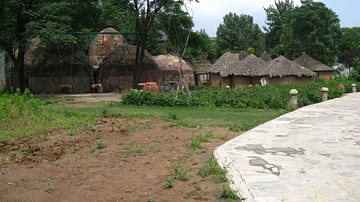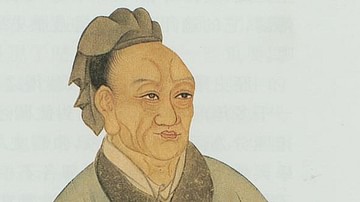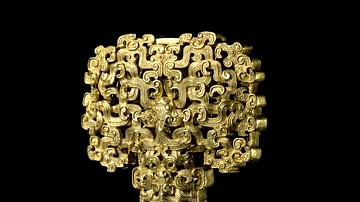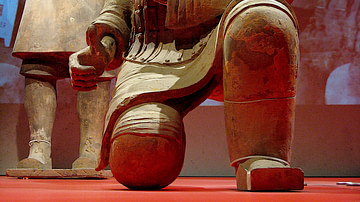Search
Remove Ads
Advertisement
Summary 
Loading AI-generated summary based on World History Encyclopedia articles ...
Search Results

Definition
Confucianism
Confucianism is a philosophy developed in 6th-century BCE China, which is considered by some a secular-humanist belief system, by some a religion, and by others a social code. The broad range of subjects touched on by Confucianism lends itself...

Video
Robinson Crusoe | Oxford World's Classics
Robinson Crusoe by Daniel Defoe (Edited by Thomas Keymer and co-annotator James Kelly) https://global.oup.com/academic/product/robinson-crusoe-9780199553976 Script: Thomas Keymer Series Producers: Harry Orme, Eleanor Chilvers and...

Definition
Mencius
Mencius (l. 372-289 BCE, also known as Mang-Tze or Mang-Tzu) was a Confucian philosopher during The Warring States Period in China (c. 481-221 BCE) and is considered the greatest after Confucius himself for his interpretation, formulation...

Definition
Chinese Literature
Chinese literature is among the most imaginative and interesting in the world. The precision of the language results in perfectly realized images whether in poetry or prose and, as with all great literature, the themes are timeless. The Chinese...

Article
Daily Life in Ancient China
Daily life in ancient China changed through the centuries but reflected the values of the presence of gods and one's ancestors in almost every time period. Villages like Banpo show evidence of a matriarchal society, where there was a priestly...

Definition
Sima Qian
Sima Qian (l. 145/135-86 BCE) was a court scribe, astrologer, and historian of the Han Dynasty (202 BCE - 220 CE) of ancient China, famous for his historical work Records of the Grand Historian for which he is remembered as the Father of...

Definition
Zhou Dynasty
The Zhou Dynasty (1046-256 BCE) was among the most culturally significant of the early Chinese dynasties and the longest lasting of any in China's history, divided into two periods: Western Zhou (1046-771 BCE) and Eastern Zhou (771-256 BCE...

Definition
Xunzi
Xunzi (pronounced shund-zee, l. c. 310-c. 235 BCE) was a Confucian philosopher of the Warring States Period (c. 481-221 BCE) in China. He is also known as Hun Kuang, Hsun Tzu, Xun Tzu, and Xun Kuang. Xunzi translates as Master Xun and is...

Definition
The Art of War
The Art of War (Sunzi bingfa) is a 5th-century BCE military treatise written by the Chinese strategist Sun-Tzu (aka Sunzi or Sun Wu). Covering all aspects of warfare, it seeks to advise commanders on how to prepare, mobilise, attack, defend...

Video
World War II: Crash Course
Only a couple of decades after the end of the First World War—which was supposed to be the War that Ended All Wars—another, bigger, farther-flung, more destructive, and deadlier war began. Today, you'll learn about how the war in Europe progressed...